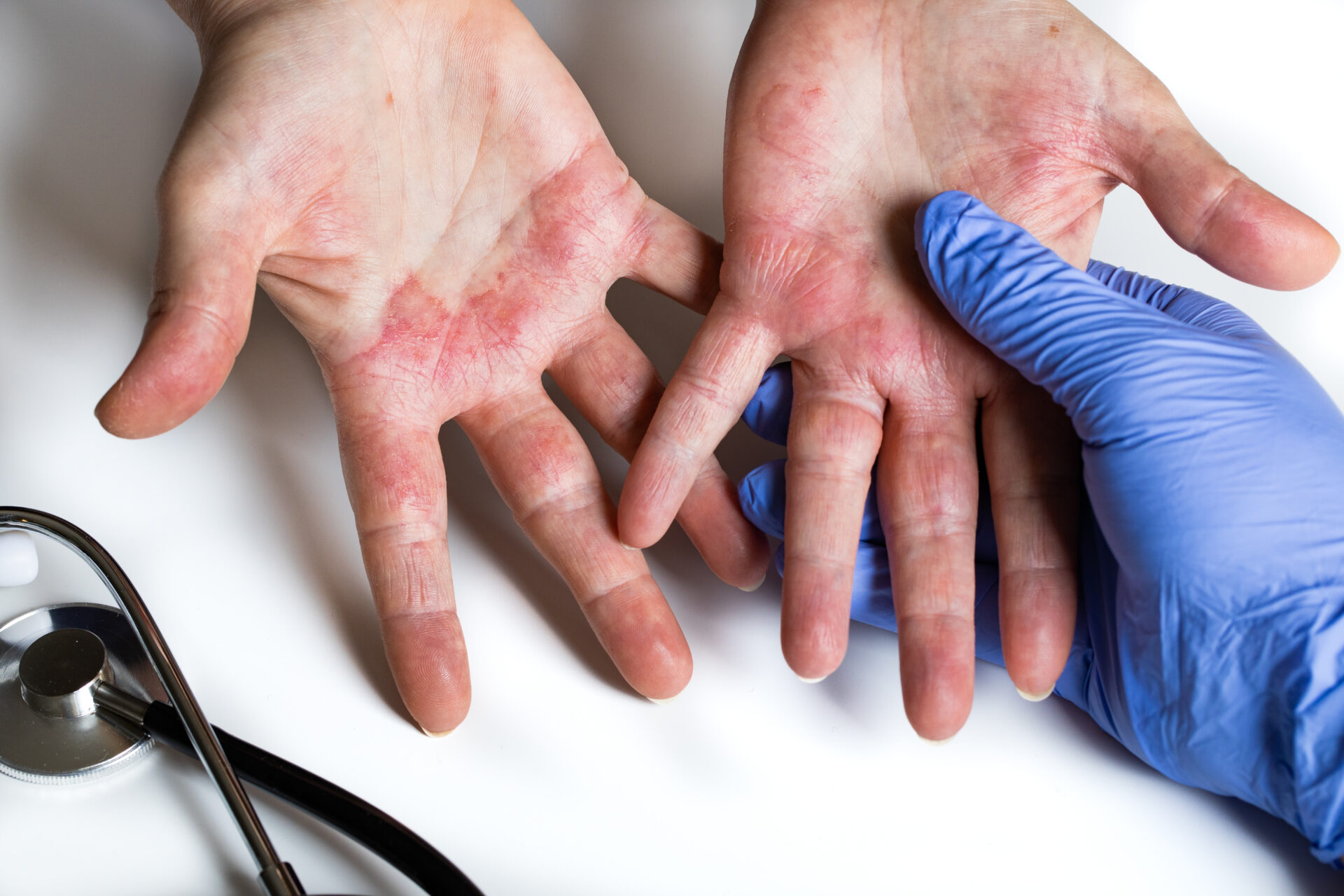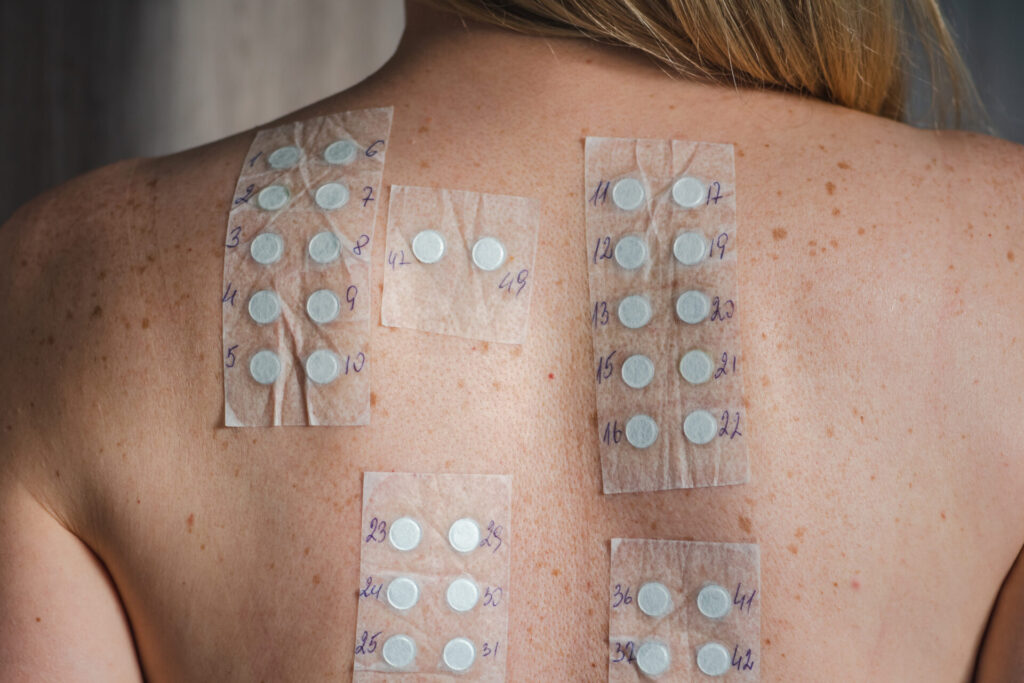Do you develop a rash after coming into contact with certain substances? Or does your skin become irritated seemingly out of nowhere? If you experience skin issues that cause discoloration, itchiness, bumpiness, and other symptoms of skin irritation, you may suffer from either atopic dermatitis (also known as eczema) or contact dermatitis (also known as skin allergies).
Atopic and contact dermatitis produce similar symptoms, making it difficult to determine which one you are dealing with.
Whether you suffer from atopic or contact dermatitis, you’re likely to experience patches of skin that become:
- Itchy
- Crusty
- Flaky
- Red or brown
- Dry
- Swollen
- Tender
- Cracked
- Blistery
Some people can experience a few of these symptoms whenever they experience an eczema or allergy flare-up. Others can experience most—if not all—of the effects of these skin irritations.
How to Tell the Difference Between Atopic and Contact Dermatitis
When dealing with a breakout, it can be difficult to determine whether your skin is reacting to a specific trigger or if you are dealing with an eczema flare-up, especially for those who sometimes experience both.

Atopic dermatitis can appear without any trigger, or it can be the result of:
- Asthma attacks
- Bouts of hay fever
- Consuming certain foods
- Air that’s too dry
- Too much exposure to hot water
- Too much humidity
- Too much perspiration on the skin
- Too much stress
While some patients are genetically predisposed to eczema, others can develop it without having a family history. Some can also suffer from flare-ups as early as childhood, while others may develop the condition later in life.
Contact dermatitis, however, is always the result of encountering a substance that your skin responds to negatively. A contact dermatitis flare-up can be triggered by an irritant, such as:
- Certain metals
- Citrus peels
- Detergents
- Fragrances
- Hair dyes
- Latex
- Lotions
- Makeup
- Perfumes
- Plants
- Soaps
Not everyone is allergic to these substances, but those who are can usually expect to experience symptoms like the ones mentioned earlier whenever the triggering substance comes in contact with the person’s skin. Contact dermatitis usually only appears in the area that the irritant or substance touches.
How to Know If I Have Contact Dermatitis?
One way to determine if you have contact dermatitis is to expose your skin to common triggers and wait for a reaction. If you have observed your skin becoming irritated after contacting certain foods, lotions, or items your skin commonly touches, you may have contact dermatitis.
A surefire way to know your skin is sensitive to certain substances, though, is through a skin patch test performed at Langford Allergy.

What Is a Skin Patch Test?
A skin patch test is our opportunity to expose your skin to small samples of common irritants and observe any reactions you may have. A skin patch test requires you to wear the patches – usually on your back – for 48 hours. We will examine your skin’s reaction after 48 hours to see which irritants affected you. After a few more days, you will revisit if you experience any delayed reactions. Breakouts due to contact dermatitis can appear within hours or take several days to flare up. Langford Allergy will monitor you at various points to ensure no reactions are missed.
If we determine that you are allergic to certain substances, we will create an effective treatment plan and provide you with quality solutions so you can experience soothing relief after a flare-up in the future.
If your skin breaks out and you want to know the cause, request a skin patch test from Langford Allergy today!
Dr. Langford and our team offer thorough allergy testing and can help you understand your skin’s reaction to certain substances. Whether you are allergic to one topical allergen or various metals, fragrances, and medications, we will create an effective treatment and management plan to soothe your skin and minimize reactions. Schedule an appointment or call our office to learn more: 478-787-4728
Related articles:
Skin Patch Testing for Allergies: What to Expect
Start 2023 on the Right Foot with Comprehensive Allergy Testing
Adult and Baby Eczema: A Look at Each
